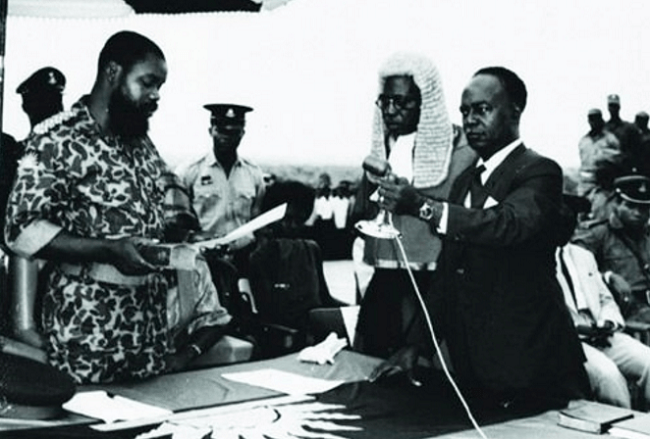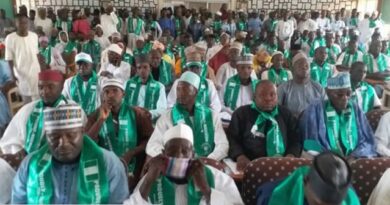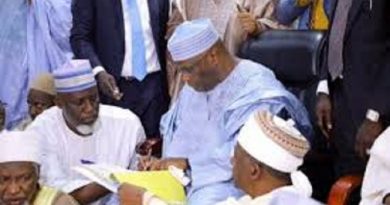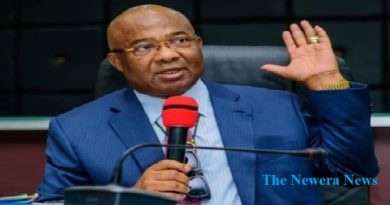Nigeria/Biafra War: That Year 2020 May Not Pass Us
The Year 2020 is upon us. It is indeed a year that Nigeria is supposed to molt its disappointments and look to the future. On many scores, it is supposed to be the Year of thanksgiving. Many nations are not as blessed.
Not many nations had their independence the way our country had hers. And statistics of young nations that descended into civil wars and eventually shrugged it off are even measly.
Even after the early travails of the nation, the internal wrangling arising from loss of values, decrepit leadership and wretched management of the nation has seen the nation dangle sometimes on the brink of uncoupling. Yet, she never did.
Therefore, an event like fifty(50) years after the war calls for large scale commemorations. The ceremonies may be sober, some could be filled with fanfare, and important intellectual energy should go into these ceremonies by a war of symposia, conferences, archaeological tours, among others.
It is surprising to some citizens, international friends of Nigeria and those of us who have conducted some level of research on the Nigerian Civil War that the freeze on the country’s most important anniversaries is baffling. The nation, by the nature of its DNA, is supposed to be a beehive of activities.
Key centres of the war, old boundaries and important personages associated with events of the time are supposed to be identified and events scheduled along such lines and locations. It is not enough to observe the annual Armed Forces Remembrance Day.
In the Year 2020, this will be minimally inadequate. The world needs to hear the Nigerian story, as we turn sixty (60) as a nation, the story must behold on the canvass.
We must not keep mute about this, especially as the centenary of the amalgamation was corruptively bungled in 2014.
The end of the civil war in 1970 marked the re-fusion of ribs of previously amalgamated colonial protectorates. After the great fall from the ladder to Nationhood, all that was gained was reversed.
The wraith of the civil war continues to haunt Nigeria and Nigerians, even a section of the people continue to deny this till eternity.
The graphic rambling and effective manifestation of chaos on the country’s landscape is beyond proof.
The Maitasine riot, multiple Kaduna riot, Shendam crises, Jos mayhem, ZakiBiam carnage, Niger Delta inferno, Boko Haram nibbling on our elfin cohesion, Sagamu unrest, high cattle rustling, banditry and kidnapping in places where this was previously a taboo, are indicative of a reconciliation with a past we have failed to acknowledge.
It appears to me that every step Nigeria intends to take from 2020 onward is tied to how she enters or exits the year. Our Armed Forces Remembrance Day must go beyond the niceties of speeches and waving of blurry fluffs of tinder unity.
Love and acceptance must replace mere tolerance. Everyone needs to begin to treat another, as a human being and then as a countryman or woman.
All instruments that measure development which itself rides on the slender trunk of peace will judge us how much peace we make in the physical or in principle.
In 2020, I expect someone to give a speech that sets Nigeria on the rail to nationhood.
Yes, there must be a replica of the speech that Sir Tafawa Balewa gave at Independence or at U.S Congress in 1963 or the talk that set Biafra engineers and technicians led by Professor Gordian Ezekwe wild, hence, birthing Ogbunigwe and other weapons that prolonged the civil war.
Our own Moa Zedong, Carl von Bismarck, Li Kuan Yew must set the hearts and minds of Nigeria melting on the peace trough. We must thrust every energy in the direction of industrialization.
From the end of the civil war in 1970 to the 60th anniversaries since independence Nigeria should come of age by indicating to all that she has indeed learned all the useful lessons and has become unstoppable as she climbs the ladder of progress. A determined nation truly, can.
Unless we deploy the studs of violence to end violence we will keep going on the rigs of conflict. As has been clearly demonstrated elsewhere in the world and a few parts of Africa, memory is a strand that can block the follicle where violence percolates.
The United Nations, the German, French and Belgian authorities have shown this in Ypres, Flanders. In Kigali, the Genocide Museum chants louder than tongues can ever say “never again”. The U.S National Cemetery in Arlington, Pennsylvania helps to remind Americans that under the star-spangled banner, the brother should never again rise against brother.
Nigeria must do more to use the lessons of the past to grab violence at its most vulnerable point.
We must burrow beyond the reefs. In keeping things firmly on the side of a collective entity, Nigeria can extend the frontiers of a future-collective to curbing the increasing violent climate, activating the untapped resources of artificial intelligence, massive agriculture, controlled population, entrenched culture of honesty and exploration of alternative power supply to light our homes and keep the factories busy.
Only then can the lingering turmoil of youth unemployment and general under-employment be comprehensively assaulted.
But we must fight with the spirit of guilt. Our declarations should have teat to unearth and cleanse innocent crimson from our land.
We indeed can appease the maimed, the oppressed and the dead by public recollection, reminiscence, and recompense, because we all as a nation, did them wrong. As Robert Frost says “There is something the dead are not telling us”.
I believe that the deceased never tell us how to appease them or make them tranquil. But it is obvious that the departed are always keen on justice.
In this guise, one expects to see the government of Enugu state to symbolically erect the bust or statue of Umaru Altine the first mayor of Enugu (1948 – 1952) at the Lion building or on a major street in the capital of the defunct Republic of Biafra.
In Zungeru Niger State, a standard museum should go up. The edifice should in its vault, the frescoes of lives and times of migrant railway workers whose children became some of the cornerstones of Nigeria independence struggle and subsequently part of the tripartite that governed this country when the British authorities formally left.
And in Gakem where the civil war started the nation as a matter of necessity, demonstrate its appreciation of her fallen heroes by redesigning the tunnels and installing befitting structures to honor those who gave sweat, limb, blood, and life to keep Nigeria won or to defend an idea they believed was right.
At the opening of such an edifice and for the future, “descendants will gather to honour great grandfathers or great grand uncles who will suddenly have become real people, not just names on family trees; soldiers restored to life metaphorically speaking, at the very moment of their burial,” war historian, Martin Fletcher reminds us.
Importantly, there must be a civil war cenotaph in Abuja. Memory is unarguably the greatest living component of man.
The memory of what we have been through will aid us to avoid the path of adversity and destruction.
Those who fan the flames of hate ought to be led to the rough path of history.
A civil war project of remembrance is important.
The culture of silence and denial is injurious to harmony in the medium and long term.
A sad reminder of the alternative to peace is the civil war memorial. Failure to bury whatever caused the nation to rise against itself is sure to result in more violent.
The year 2020 is a dreadful moment. War will keep raging in the hearts of Nigerians and in the psychology of unrecognized moments. When denial is given shrift and we turn with memory on our palms to acknowledge 1967 – 1970 was a misnomer.
Thereafter, we can flash out a National handshake and stream out a peace deal in the hearts of all and sundry namely: we are all human therefore one.
Every soul that perishes (post-civil war) as a result of conflict is a betrayal of the men who died in the jungles and foxholes of the Biafra war. The pictures of kwashiorkor victims, withered limbs and deaths in the afternoon posed more questions as to the utilitarian nature of war.
It remains regardless of that confrontation at Ogoja grasslands, Asaba footpaths, Ikom jungles and Biafra heartland, our duty to henceforth see the history of guns and warplanes as unfitting of civility.
We can’t electrify all the communities to build hospitals in all enclaves nor can proper schools be established in all nooks and crannies at once. But in one day, we can build the colonnades of peace and dedicate our Nation to the altar a great rebirth, harmony, and tranquillity, cementing harmony, social cohesion and eternal love for one another.
As well as a year of ruing missed timelines and deadlines, 2020 definitely holds the determinant key as to whether we elect progress or take a rumpled position on the cushions of mediocrity, failure, and enduring chaos.
Rather than put up with the ordure of a regurgitated past, energy should be dissipated in bridge-building not mere preachment of tolerance.
As Barrack Obama reminded the world, especially people a haunting knowledge of the conflict, in his 2013 inauguration, there must be a pledge that “We, the people, still believe that our enduring security and lasting peace do not require perpetual war.
Our brave men and women in uniform, tempered by flames of battle, are unmatched in skill and courage.
But we are also heirs to those who won the peace and not just the war, who turned sworn enemies into the surest of friends, and we must carry those lessons into this time as well.”.
Bankong-Obi, journalist, and poet sent this piece via banxobi@gmail.com. His books, The First Shot: Ogoja Province and the Untold Story Of The Nigeria/Biafra war and War Without End? Healing Nigeria’s Half-Century Civil War Wounds will be published in January and July 2020, respectively






